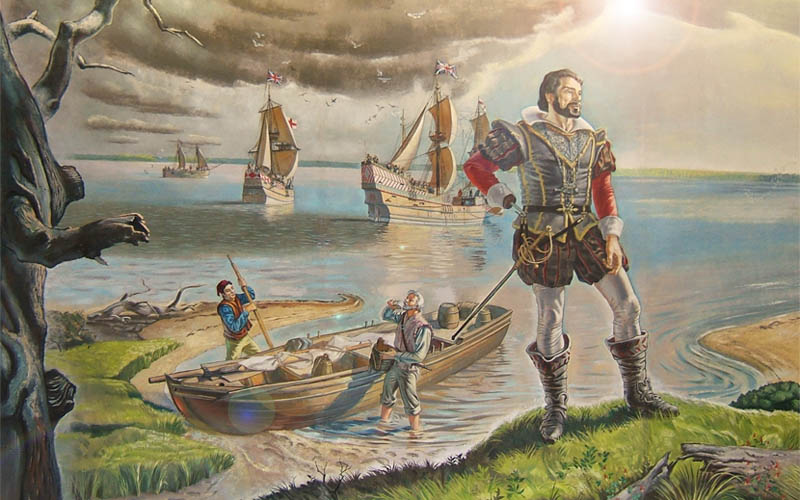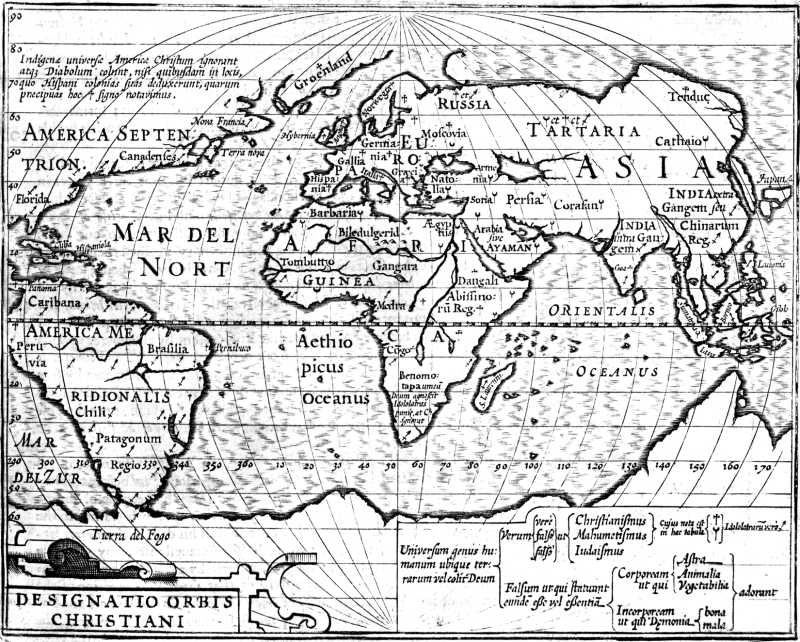
In nearly forty years of Sea Voyages, Captain Christopher Newport played an important role in the evolution of England from an isolated island society to a major sea power with expanding overseas colonies, which ultimately became the British Empire. During seventeen years of successful privateering in the Caribbean, he and other English privateers enriched the English monarchy and provided financial support for the future English colonization of North America. Newport was the most important leader in the initial establishment of the Virginia Colony at Jamestown, the first permanent English-speaking colony in North America. For the first five difficult years, he kept the struggling colony alive by resupplying the colonists, bringing new colonists to Jamestown, and supervising the building of the settlement's initial palisade, storehouse, church, and dock. With his leadership skills, knowledge of navigation, seamanship experience, and ability to negotiate with the Indians, he repeatedly rescued the Jamestown colony from extinction. His later voyages to the East Indies confirmed the feasibility of trading by sea with the East and the large commercial profits that England could expect from these expeditions. His voyage to India laid the foundation for the subsequent British occupation of India. Newport's role in the shipwreck of the Sea Venture in Bermuda and the successful completion of the voyage in two smaller ships built from Bermuda cedar, led directly to the founding of the Bermuda colony, which remains a British protectorate to this day, and one of the last remnants of the British Empire.
A remarkable feature of Captain Newport's successful career is that he was a commoner with little formal education. Many of the early leaders of English voyages of exploration and colonization were sons of prominent and wealthy English families, often owners of large estates. Several of these leaders also had advanced educations. Bartholomew Gosnold, for example, was educated in law at Cambridge University, and Gabriel Archer and William Strachey attended Cambridge. We know nothing of Newport's education, but his will, and a letter he wrote to the Earl of Salisbury, secretary of the Virginia Company of London, indicates that he could write well, using ornate phrases stylish in the era.

The fact that Captain Newport was chosen to lead a major English expedition despite his lack of formal schooling or advantages of birth, is a testament to his leadership skills and to the high level of respect he won from the prominent London businessmen who developed the Virginia Company. Furthermore, his selection to lead the voyages to Virginia based on his experience and ability, rather than on his social status, exemplified the gradual erosion of the medieval social structure and the evolution of Renaissance values in England. Men were increasingly chosen for leadership positions based on their individual attributes and experience rather than titled pedigrees.
Captain Newport's ability to lead men was legendary. At the young age of twenty-nine, he was appointed to the rank of captain, and he survived nearly twenty years as a privateer, commanding men in fierce battles against the Spanish. In 1592, as Captain Newport's ship approached a large Portuguese carrack, he delivered a famous speech to his men, "Masters, now the time has come that either we must end our days or take the said Carrick." He successfully motivated his crew to board and capture the Portuguese vessel during a long and bloody sea battle.